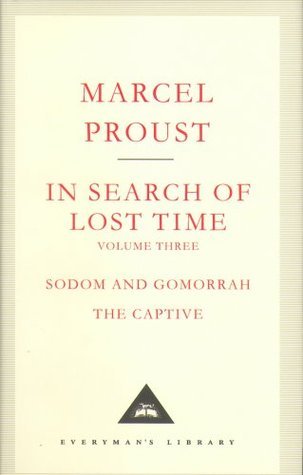
In Search of Lost Time, Vol. 3: Sodom and Gomorrah & The Captive
Book Description
Secrets simmer beneath the lavish surface of Parisian high society, where desire and betrayal intertwine in a dance of longing and despair. As love's complexities unravel, the specters of jealousy loom large, forcing characters into the depths of their own souls. Suspicion grows as alliances shift and hidden passions emerge, revealing that even the most refined façades can conceal unspeakable truths. The haunting echoes of a lost world collide with raw human emotion, leaving hearts shattered and lives forever changed. In the quest for connection, will love conquer the shadows lurking in the depths of betrayal?
Quick Book Summary
In Volume 3 of "In Search of Lost Time," Marcel Proust delves deeper into the intrigue and complexity of Parisian high society through the narrator's evolving relationships and observations. "Sodom and Gomorrah" exposes hidden sexualities and the hypocrisy of the aristocracy, particularly through the lives of Charlus and Jupien. "The Captive" focuses intensely on the narrator's obsessive love for Albertine, exploring themes of jealousy, control, and the elusive nature of truth in relationships. Beneath the glittering surface of salons and soirées, intense passions simmer, secret alliances form, and the pressure of social expectations shapes every word and gesture. The volumes reveal how love, desire, and suspicion act as forces of both creation and destruction, ultimately questioning whether true connection is ever possible amid the shadows of doubt and deception.
Summary of Key Ideas
Table of Contents
The Masking of Desire and Identity
Proust opens Volume 3 by lifting the veil on secret lives within the French aristocracy, particularly through the homosexual relationships subtly hidden beneath respectability. Baron de Charlus’s attraction to Jupien and the clandestine world of "inverts" are described with both sensitivity and irony, exposing how desire is often masked by polite façades. The society’s code of silence and the risks inherent for those who transgress social norms highlight the era’s rigidity and cruelty, while also humanizing those living in the shadows.
Jealousy and Possessiveness in Love
As the focus shifts to the narrator’s relationship with Albertine, the narrative is consumed by his obsessive jealousy and desperate need for control. He becomes his own captor, keeping Albertine under close watch and manipulating her daily life, motivated by suspicion about her possible involvement in lesbian relationships. These feelings turn love into torment, with every gesture and word scrutinized for evidence of betrayal. The psychological intricacy with which Proust portrays jealousy underscores the destructive power of possessiveness and insecurity.
Social Hypocrisy and High Society
The lush backdrop of Parisian high society remains ever-present, its salons and soirées buzzing with gossip, alliances, and shifting loyalties. Proust savagely critiques the social hypocrisy that allows secrets to flourish beneath public decorum. The same circles that enforce conformity are rife with transgressive passions, and characters must become adept at dissembling both their motives and true selves. Prestige and belonging often come at the cost of personal honesty and emotional fulfillment.
The Illusion and Pursuit of Control
Throughout these volumes, the search for control is revealed as both futile and damaging. The narrator’s efforts to keep Albertine captive do not resolve his anxiety, but rather intensify the emotional gulf between them. Proust illustrates how attempts to master another person—whether out of fear, love, or social pressure—can only result in further misunderstanding and heartache. Freedom, he suggests, is essential for genuine connection, but also frighteningly elusive within the labyrinth of human desire.
Unreliability of Perception and Memory
Undergirding the entire narrative is the theme of unreliable perception and the slipperiness of memory. The narrator’s experiences and emotions are shaped by his biases, doubts, and imaginative reconstructions, calling into question the very possibility of true understanding—of others or even oneself. Proust's masterpiece thus interrogates not just the nature of high society and love, but the human condition itself, suggesting that the answers we seek are always complicated by the shifting shadows of consciousness.
Download This Summary
Get a free PDF of this summary instantly — no email required.





